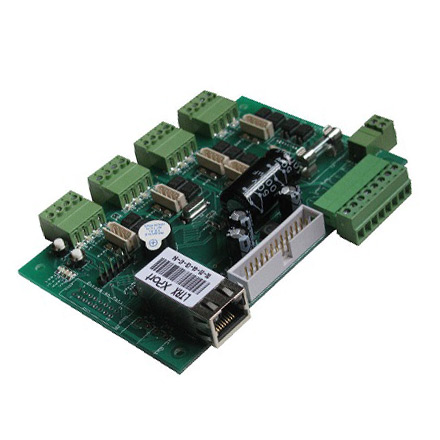The Pivotal Role of Tempered Glass Factories in Modern Industry
In the realm of modern manufacturing, tempered glass factories hold a significant position due to their ability to produce high-strength, safety-oriented glass products. Tempered glass, also known as toughened glass, is a type of safety glass that has been processed by controlled thermal or chemical treatments to increase its strength and resistance to impact, heat, and pressure. This makes it ideal for various applications, from smartphone screens to skyscraper windows.
The process of manufacturing tempered glass in these factories begins with float glass, which is heated to approximately 600°C and then rapidly cooled. This rapid cooling induces compressive stress on the surface of the glass, while the core remains under tension. If the glass breaks, it shatters into small, harmless granules instead of sharp, jagged pieces, significantly reducing the risk of injury.
Tempered glass factories are equipped with state-of-the-art technology and machinery, including large furnaces for heating, quenching machines for rapid cooling, and advanced cutting and edging tools. These facilities adhere to strict quality control measures to ensure that each batch of tempered glass meets international safety and performance standards.
One of the key advantages of tempered glass is its durability. It can withstand temperatures up to four times higher than ordinary annealed glass, making it perfect for use in kitchen appliances, oven doors, and even solar panels. In the automotive industry, tempered glass is used for side and rear windows due to its resistance to shattering during collisions.
Moreover, in the construction sector, tempered glass factories play a crucial role in providing safety and aesthetics
Moreover, in the construction sector, tempered glass factories play a crucial role in providing safety and aesthetics

Moreover, in the construction sector, tempered glass factories play a crucial role in providing safety and aesthetics
Moreover, in the construction sector, tempered glass factories play a crucial role in providing safety and aesthetics
 tempered glass factory
tempered glass factory. Used extensively in architectural designs, tempered glass offers unobstructed views while maintaining structural integrity. It is a popular choice for balustrades, glass walls, and floor-to-ceiling windows in modern buildings.
Notably, the rise of the electronics industry has further fueled the demand for tempered glass. With smartphones, tablets, and smartwatches becoming an integral part of our lives, tempered glass screens have become standard for their enhanced durability and scratch resistance.
Despite the challenges posed by the global market dynamics and environmental concerns, tempered glass factories continue to innovate and adapt. Many are investing in sustainable practices, such as recycling glass waste and using energy-efficient technologies, to minimize their carbon footprint.
In conclusion, tempered glass factories are not just manufacturing units; they are integral components of a safer, more durable, and aesthetically appealing world. Their contribution to various industries, from construction to electronics, underscores the importance of their work and the ongoing evolution of glass technology. As we move towards a more technologically advanced future, the role of these factories will only continue to grow, ensuring that the products we rely on daily remain robust, safe, and visually appealing.


 Moreover, in the construction sector, tempered glass factories play a crucial role in providing safety and aesthetics
Moreover, in the construction sector, tempered glass factories play a crucial role in providing safety and aesthetics
Moreover, in the construction sector, tempered glass factories play a crucial role in providing safety and aesthetics
Moreover, in the construction sector, tempered glass factories play a crucial role in providing safety and aesthetics tempered glass factory. Used extensively in architectural designs, tempered glass offers unobstructed views while maintaining structural integrity. It is a popular choice for balustrades, glass walls, and floor-to-ceiling windows in modern buildings.
Notably, the rise of the electronics industry has further fueled the demand for tempered glass. With smartphones, tablets, and smartwatches becoming an integral part of our lives, tempered glass screens have become standard for their enhanced durability and scratch resistance.
Despite the challenges posed by the global market dynamics and environmental concerns, tempered glass factories continue to innovate and adapt. Many are investing in sustainable practices, such as recycling glass waste and using energy-efficient technologies, to minimize their carbon footprint.
In conclusion, tempered glass factories are not just manufacturing units; they are integral components of a safer, more durable, and aesthetically appealing world. Their contribution to various industries, from construction to electronics, underscores the importance of their work and the ongoing evolution of glass technology. As we move towards a more technologically advanced future, the role of these factories will only continue to grow, ensuring that the products we rely on daily remain robust, safe, and visually appealing.
tempered glass factory. Used extensively in architectural designs, tempered glass offers unobstructed views while maintaining structural integrity. It is a popular choice for balustrades, glass walls, and floor-to-ceiling windows in modern buildings.
Notably, the rise of the electronics industry has further fueled the demand for tempered glass. With smartphones, tablets, and smartwatches becoming an integral part of our lives, tempered glass screens have become standard for their enhanced durability and scratch resistance.
Despite the challenges posed by the global market dynamics and environmental concerns, tempered glass factories continue to innovate and adapt. Many are investing in sustainable practices, such as recycling glass waste and using energy-efficient technologies, to minimize their carbon footprint.
In conclusion, tempered glass factories are not just manufacturing units; they are integral components of a safer, more durable, and aesthetically appealing world. Their contribution to various industries, from construction to electronics, underscores the importance of their work and the ongoing evolution of glass technology. As we move towards a more technologically advanced future, the role of these factories will only continue to grow, ensuring that the products we rely on daily remain robust, safe, and visually appealing.